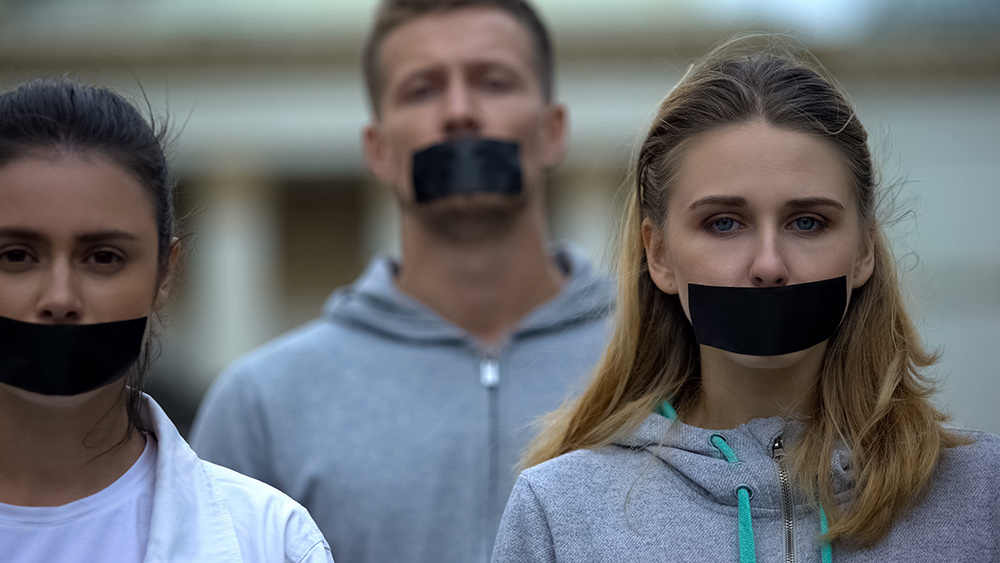German woman gets PRISON TIME for criticizing invading migrants who commit violence
10/05/2023 / By Cassie B.

An 87-year-old German woman is going to prison after speaking out on social media against migrants and asylum seekers, some of whom commit atrocities such as rape and murder.
The woman, who had gone into hiding for several months following her conviction and sentencing, was apprehended by authorities in Rothenburg and transferred to a correctional facility to serve out her sentence.
A court in the town of Verden convicted her last year based on two posts she made on Facebook that they said incited violence against migrants to Germany. An appeal court in Rothenburg later upheld the ruling. She was sentenced to eight months in prison.
The woman has been labeled by authorities as a “Reichsburger,” which means she belongs to a right-wing extremist group that does not recognize Germany as an independent country.
Numerous German laws limit free speech
Germany has a very different view on free speech than the U.S., with a series of “hate speech” laws that have been passed throughout the years since Hitler’s defeat. Many of them relate to Germany’s Nazi past, prohibiting denying the Holocaust or disseminating Nazi propaganda, whether it is online or in person. They also subject social media platforms to strict rules governing how they moderate and report hate speech.
For example, Section 130 of its criminal code bans insults against people based on ethnic, racial, national or religious backgrounds, and this includes Holocaust denials.
Some people have received harsh punishment in Section 130 prosecutions, such as German chemist Germar Rudolph, who was sentenced to 2.5 years behind bars after being convicted of Holocaust denial. Germans who approve, glorify of justify Nazi rule could be put in jail for up to three years.
Another rule, the Network Enforcement Act, calls for heavy fines against any internet platforms that do not quickly remove and report hate speech that is posted through their platform. The German government fined Facebook around $2.3 million for under-reporting the complaints it received about such posts. The law was changed in 2020 after a series of terror attacks to toughen the penalties for insults made online and raise the reporting requirements for social media platforms. Platforms are also required to report the IP addresses of users whose posts are taken down to federal police.
The law was criticized on both sides of the political aisle in Germany and the international community for compromising freedom of speech and invading people’s privacy. When the law was proposed, UN Special Rapporteur to the High Commissioner for Human Rights said: “The short deadlines, coupled with the aforementioned severe penalties, could lead social networks to over-regulate expression — in particular, to delete legitimate expression, not susceptible to restriction under human rights law, as a precaution to avoid penalties.”
Another law, Chapter 14, prohibits personal insults ranging from malicious gossip about private individuals to defaming politicians. A publisher of Neo-Nazi propaganda who was convicted of violating the memory of the dead was handed a five-year prison sentence under this law.
Rise in violent crime in Germany has been attributed to refugees
Many Germans are concerned about rising crime as more migrants and refugees make their way into the country. One study found that more than 90 percent of a concerning spike in crime recorded from 2015 to 2016 was attributed to young male refugees, although they pointed out that those who had lower chances of being able to stay in the country in the long term were more likely to commit crimes.
The same study found that migrants were twice as likely to be reported to the police for committing violent crimes as German nationals.
Sources for this article include:
Submit a correction >>
Tagged Under:
banned, big government, Big Tech, cyber war, Facebook, fascism, free speech, freedom, Germany, Glitch, immigration, insanity, intolerance, Liberty, migrants, Open Borders, Orwellian, police state, policing, speech police, thought crime, thought police, Tyranny
This article may contain statements that reflect the opinion of the author
RECENT NEWS & ARTICLES
COPYRIGHT © 2018 SPEECHPOLICE.NEWS
All content posted on this site is protected under Free Speech. SpeechPolice.news is not responsible for content written by contributing authors. The information on this site is provided for educational and entertainment purposes only. It is not intended as a substitute for professional advice of any kind. SpeechPolice.news assumes no responsibility for the use or misuse of this material. All trademarks, registered trademarks and service marks mentioned on this site are the property of their respective owners.



















